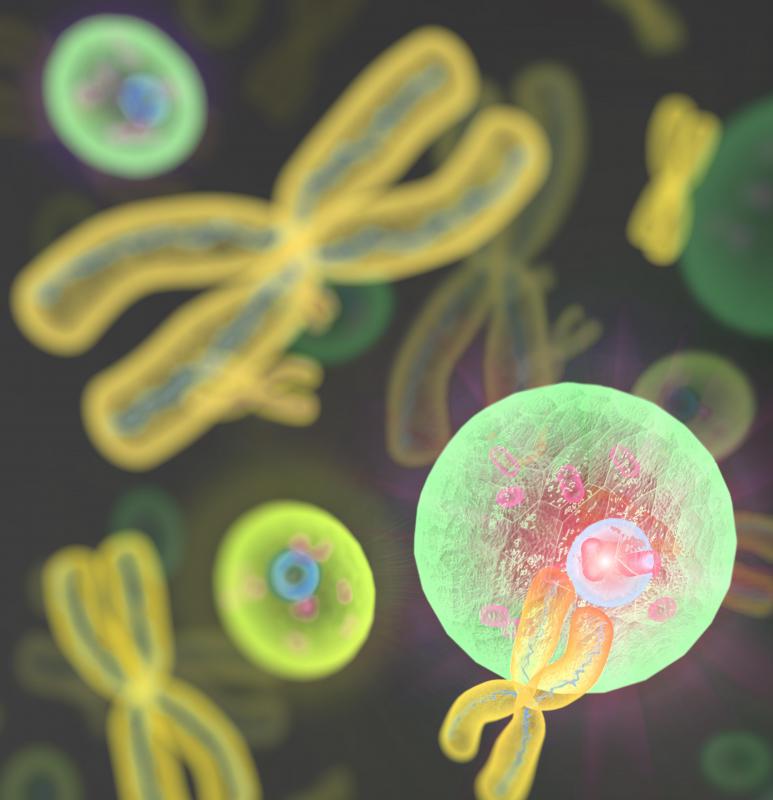At WiseGEEK, we're committed to delivering accurate, trustworthy information. Our expert-authored content is rigorously fact-checked and sourced from credible authorities. Discover how we uphold the highest standards in providing you with reliable knowledge.
How Do I Become a Clinical Cytogeneticist?
Cytogenetics is a scientific branch dedicated to the study of cell structure, specifically chromosomal activity and its relation to genetics. If you were to become a clinical cytogeneticist, your work would utilize the latest clinical technology in applying chromosomal studies to clinical medicine. Due the technological advances necessary to establish and advance this field, you should be apt with microscopes among other equipment used to analyze cells and equipped with a thorough understanding of the techniques used to study them. If you are a person who enjoys laboratory work, science, and are interested in helping advance the field of genetics, then perhaps considering this field may be a good option.
The work cytogenetics may be better understood if broken into parts. The first component, cyto, refers to the cell. Genetics is the study of hereditary materials. Therefore, cytogenetics basically means cell genetics. To become a clinical cytogeneticist, you must therefore acquire a vast amount of knowledge and an intricate skill set pertaining to the clinical aspect of this profession, as well as regarding the scientific foundations of the discipline.

The best way to acquire the basic knowledge needed is to pursue an undergraduate degree in the field or a related field. Some programs of study may include cellular biology, genetics, or molecular biology to name a few. These degrees aid in the acquisition of foundational knowledge. Most programs include the study of biology on the cellular level, as well as a core base in chemistry, physics, and other sciences.

Once you have successfully obtained a degree, there are a number of steps you may take in order to become a clinical cytogeneticist. There are different degrees of involvement that a person may choose to pursue within the field, as well as different professional meanings of clinical cytogeneticist from country to country. In the UK, for example, to become a clinical cytogeneticist, there is a specific training program necessary for licensing. This training program is deemed the STP, or scientist training program. In the United States, however, to become a clinical cytogeneticist, a postdoctorate degree is usually needed.

There are other ways to be involved and employed in the field if you do not choose to go to medical school followed by specialized postdoctorate training. You may choose to be involved as a tech. A tech is responsible for conducting routine procedures but is not likely to be involved in the analysis of results.
Regarding the work that clinical cytogeneticists actually perform, their responsibilities generally come in three forms. The first is to analyze the blood for genetic information about congenital abnormalities, learning difficulties, reproduction issues, or anything deviating from the norm. Secondly, most people in this field study prenatal diagnosis of chromosomes, which is done through the analysis of prenatal fluid samples. The third task also has to do with sampling; however, the sources for these tests are from the bone marrow or blood.
AS FEATURED ON:
AS FEATURED ON:














Discuss this Article
Post your comments